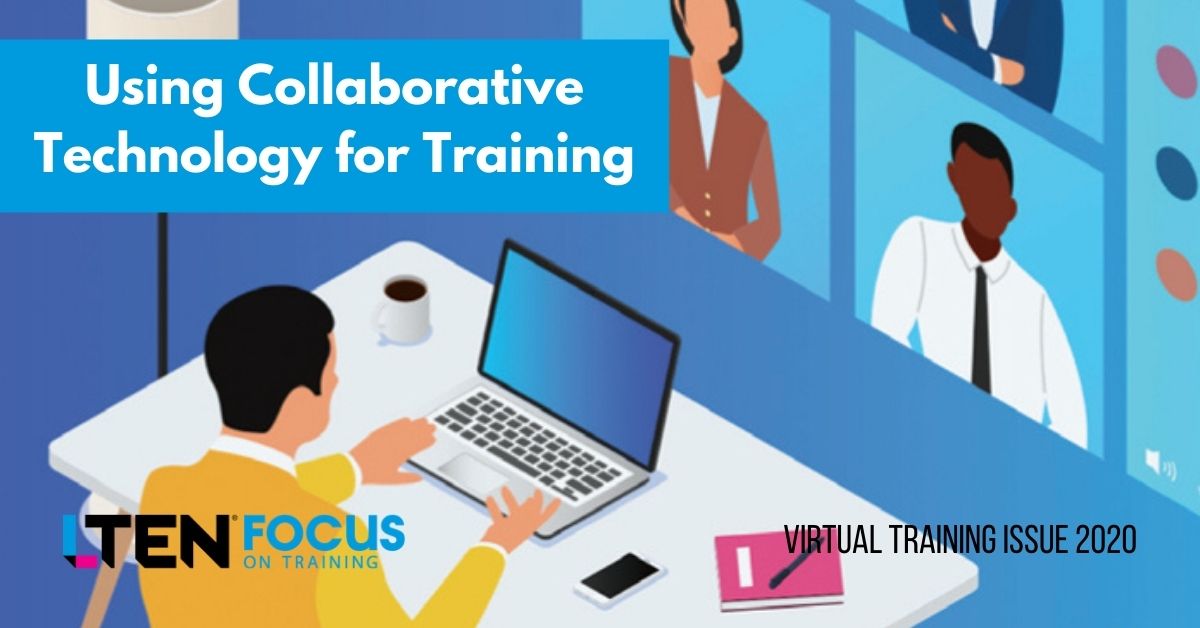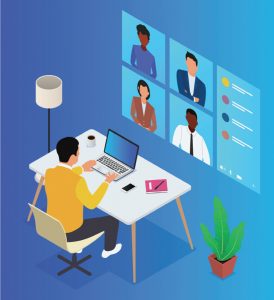
Using Collaborative Technology for Training
FEATURE STORY – By Erika Thomas
In today’s unique market, companies must pivot strategically to achieve maximum results in remote settings.
 With an increased focus on remote training, virtual onboarding and digital collaboration, the need to streamline workforce technology with business goals has never been timelier. Thankfully, there are creative ways that various departments within a company can create training materials, provide mandatory compliance information and disperse important company changes and protocols with ease.
With an increased focus on remote training, virtual onboarding and digital collaboration, the need to streamline workforce technology with business goals has never been timelier. Thankfully, there are creative ways that various departments within a company can create training materials, provide mandatory compliance information and disperse important company changes and protocols with ease.
Quite frankly, gone are the days of a four hour mandatory training for managers and employees. To thrive in today’s unique marketplace, companies must pivot strategically to achieve maximum results in a remote setting.
Here are some top suggestions to creating a high-functioning internal ecosystem that sets your team up for success.
Create (Or Revamp!) Your LMS
Not surprisingly, the learning management system (LMS) is the basis of information and resources for a company. While there are plenty of companies that offer off-the-shelf content, some companies have looked inward to use their own explainer video license paired with custom interactive modules to build their own unique LMS within their shared customer relationship management (CRM) platform.
This means that training videos and modules are hosted and accessible by all employees for repeat usage, multiple viewings and continual reference. This can be incredibly beneficial in a remote working environment. Today’s technology gives you many options to determine which method works best for your company.
Simplify Your Message
One common mistake that many companies face is the lack of understanding between the material and the learner. As you begin to populate or transform your LMS, take an honest look at the subject matter and how digestible it is from the eyes of a novice. If you want an even clearer assessment, you can enlist a second set of eyes to review materials and give you their feedback. Many times, novice level learners are not used to industry jargon and other hyper-specific terms – does your training cater to learners of all levels where applicable?
There is a famous quote by Albert Einstein that says, “If you can’t explain it simply, you don’t know it well enough.” Take out the fluff and get to the meat of your materials. The more direct the training, the more likely your audience is to get it and remember it. There are even collaborative technology tools that allow you to leave internal comments and feedback within an existing video, document or other type of shared file.
 Consistency Is Key
Consistency Is Key
Whether you choose to roll out training on a monthly, quarterly or biannual basis, the key to training success is deeply intertwined with a consistent schedule that your team understands and anticipates. Having a shared calendar with clearly scheduled training throughout the year is a great way to keep upcoming learning at the forefront of your employees’ minds. You can also implement automated employee messages to deploy as new trainings and modules are loaded to ensure there is company-wide knowledge when new materials are available for user access.
Go the Extra Mile
While some training is mandatory, there are plenty of companies that offer frequent training resources and learning and development opportunities to their staff. This is something that many employees see as a perk when researching a company – they want to know they will develop and grow alongside the company as professionals.
This is also a place where a frequently updated LMS can serve as an educational resource for your team.
Take it one step further and get creative with your training! Traditional management track programs will always be an appealing offer for some employees, but even smaller-scale recognition and awards for habitual LMS users is a nice way to entice your team to see what’s new in your internal communications hub.
Crowdsource Feedback and Look to Improve
Like any productive program, you’ll want to initiate a system of collecting feedback from your users to see what works, what could be improved and what can be scrapped altogether. This will not only help pare down your LMS to the most engaging and well-received training materials, it will also empower your team to have a voice and share candid feedback on the training you are working so hard to create and deliver.
The most effective programs are ones that offer what your employees need, when they need it. Anonymous forms and other cloud-hosted surveys can be quick and easy ways to get honest feedback from your employees.
Admire Your Progress and Then Repeat
Resting on your laurels would be a shame after all of the hard work you put into sourcing collaborative input, redesigning your LMS, implementing changes, introducing recognition programs and really getting your employees excited about the corporate learning journey your company has to offer. That’s why you should benchmark results, continually monitor engagement, pivot based on what’s happening in the world and remain exciting to your team.
Repeat all the above steps and remember that you have a powerful platform to offer continual learning experiences to your employees — use that power wisely and to your fullest ability.
As the training world continues to adapt and evolve, one thing is clear – technology isn’t going anywhere. With the ability to transcend borders and bring us together like never before, technology is something that has immense power to positively impact training, onboarding, change management, internal communications and more.
Erika Thomas is director of marketing and communications at simple show. Email
her at erika.thomas@simpleshow.com.
Fall 2020 – Virtual Training








